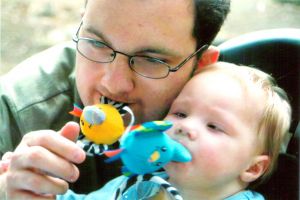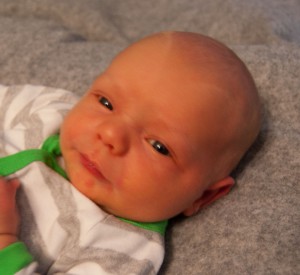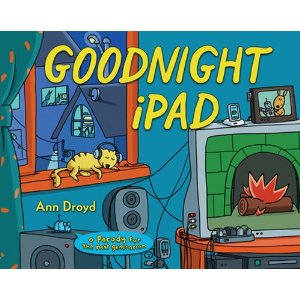
- Photo by Megan Oteri ~ All Rights Reserved
A good thief leaves no trace and leaves with a bounty.
I say, steal time away like a thief.
I just read a great article by my writing and personal inspiration, Anne Lamott. She wrote this article in Sunset magazine. I was lucky enough to meet her recently. She came to Raleigh, which is 45 minutes away. I got the call from my writer friend, Debi Elramey (you can read her wonderful blog here, “Pure and Simple”) at 4:30 in the afternoon. She told me Anne was coming. I asked her if she was going and she could not get away. But she said, with her curious giggle and enchanting smile I could hear through the phone, “You should go and represent our town.”
Our tiny town in Eastern North Carolina.
I said, “I’ll represent proudly.”
Debi is a recluse and takes pride in this. As she should. She teaches piano during the day; she writes through the wee hours of the night. Sometimes, there simply is no time to chatter.
I write this post as I look at the clock. Aware that my son will wake soon. Oh, that is him right now. I ignore the sounds of morning milk wants and continue writing, thinking to myself, perhaps I could give him a gulp of breast milk and be on my way back to the keyboard, back to the muse. Back to my post, that I ride like a proud cowgirl, on top of my gallant horse. But mom duty calls and I will honor it. But I plan to improve my thief skills. I will steal away more moments. I will make a plan. I will practice. Because as Anne says in her article, life is too precious to multitask. I want to wander, daydream, create, be filled with muse. And I will have to steal away moments to do this. Not always, as many moments are there for the taking if we are truly present.
But it helps to know how to pocket an hour in your sleeve without a soul knowing. These early morning hours are delicious to me. They taste like caviar. Like picnics.
I was lucky enough to meet Anne at Quail Ridge Books in Raleigh. It was a delightful evening. I got the call from Debi at 4:30 PM. By 4:45 I was off the phone and had called my husband at work and made plans for him to watch our son. I was in the car by 5:30 and off to Raleigh singing songs of wonder and excitement. Alone, but in company of thousands, on the highway, in the city, at the bookstore, I was present. I was able to get the last copy of her new book, which she was promoting, Imperfect Birds. Now, that was a sign.
I had my camera in hand. I saw her. There she was, greeting her fans like Jesus. Holding hands, hugging. The crowd was kind, and aware of something. They had made the time to come see her. Many stealing away from their husbands, children, jobs, energy, housework. But they were there. I was lucky enough to get a photo with her.
I snuck into a cove of crowded people. I am a fire sign, so when I have my eye on something, you better watch out. I’m an Aries to boot. And I lack a filter of sorts, thanks to my New Yorker mom and South Side of Chicago dad. And time living in Wyoming. And the years in-between.
I inched my way closer, squeezing through a narrow path. You know, suck in your gut, squeeze in your buttocks, and scoot your way through a wormhole tiny. Yep, that is what I did.
“Excuse me.”
“I’m so sorry,” dressed in a hopeful smile. Inside thinking, “Yikes, I’m lucky someone doesn’t purposefully trip me, I am so annoying.”
The target was seen. I was so close. I stopped to gather more strength. I was this close, I was going in.
Anne was greeting her fans still. Smiles were contagious. Everyone was high off Anne. High off her energy. High off the fact she is an icon for recovering addicts and alcoholics, one herself.
Her dreads dangled in her purply pink hair bandana, tied in a triangle around her fluffy head, soft with the brittle looking combs of dreads. She is simply beautiful.
Her wrinkles were within eye looking distance. I took a deep breath and spoke shortly with a pretentious looking woman. Well, it was more of how she reacted to me that thinks that.
I forgot what I asked her. But she responded with, “I’ve been following Anne for a long time.” In a deep husky patronizing snobbery way. thick with black wire rim glasses and some sort of grey black yogenia outfit. She had grey hair too.
It’s not what she said, but how she said it. But I don’t blame her for being rude to me. I was a bull in a China shop and she was a porcelain jar I had just tipped over.
Oops. Sorry.
Moving on, I jimmied my way through another batch of women. This time a circle of more stout and plump women. I had my work cut out for me. I was between the rotating cards on their display racks and a table of discounted books. I picked one up to be inconspicuous. My camera was around my neck. A woman smiled at me from across the room. She was me, only five steps closer, already one step away from Anne’s embrace. I put the discounted book on travels in Ireland down. The stout, plump women smiled at me. They moved their dangling legs off the discount book table top to make room for my eager ram horns wiggling by the discount book table and the greeting cards.
“Thank you so much. I appreciate you letting me by, since it is pretty tight quarters?” They laughed, poised in their make shift seats on the discount book table.
I stood about four people deep from Anne. I said to the woman in front of me, “I’m stalking Anne,” as I clutched my copies of Bird by Bird, Operating Instructions (which was a saving grace to me as a new mom) and Imperfect Birds. Anne was scribbling away her name in black thick Sharpie ink, talking and chatting as she wrote. Her smile thick was like a blanket for many.
So, there I was. So close. The woman I said that to said, “We’re all stalking Anne.” I looked around the room and sure enough, we were.
A cute little spit fire of a five foot nothing gal, looked into my eager eyes, and saw my camera dangling. She said, do you want me to take your picture with Anne?”
“Ah, yeah. Word. Thank you so much. Do you have a camera? I will take yours with her.”
“Nope, I’m all set. But thanks.”
See, there you have it – the Anne fans.
Since a picture is worth a thousand words and it is time for this thief to make her getaway, since I have a nice size essay in my pocket.
I will leave you with this photo.
But before we take care of that. Do me a favor. Read the article in Sunset that Anne wrote about making time for your muse. Whatever it is you do, do it. Don’t let yourself talk yourself out of it. Steal away the time like a thief in the night. There is no time stealing police. Only responsibilities and multitasking that need to get the hand. Talk to the hand. Go ahead and put that hand up like you are some bitchy high school girl. (hand motion – wrist circle and up it goes — “Talk to the hand.”)
Find the time. Because what fills you up fullest is often empty from external and material view.
Always,
memomuse




 I cannot underscore the importance of a supportive spouse, partner, or mother’s helper when you’re a work-from-home parent of a mobile baby or preverbal toddler.
I cannot underscore the importance of a supportive spouse, partner, or mother’s helper when you’re a work-from-home parent of a mobile baby or preverbal toddler.



 Hello parents! The cover was risky but a brilliant hook by Time Magazine to attract readers, and they achieved their goal. The writer, Kate Pickert, herself a new mother and one of Time’s most diligent writers, sincerely wanted to increase awareness of the Sears’ family contribution to parenting and family health. She lived with our family for two days, followed me in the office, and spent hours with me on the phone in an attempt to be factual. While the cover photo is not what I or even cover-mom Jamie would have chosen, it accomplished the magazine’s purpose. And, as some attachment dads observed, finally a magazine displays a woman’s breast for the real purpose for which they were designed – to nurture a child, not to sell cars and beer. Cover-mom Jamie is a super-nice person and highly-educated in anthropology, nutrition and theology. I enjoyed the several hours I spent with her family and her kids shined with the social effects of attachment parenting.
Hello parents! The cover was risky but a brilliant hook by Time Magazine to attract readers, and they achieved their goal. The writer, Kate Pickert, herself a new mother and one of Time’s most diligent writers, sincerely wanted to increase awareness of the Sears’ family contribution to parenting and family health. She lived with our family for two days, followed me in the office, and spent hours with me on the phone in an attempt to be factual. While the cover photo is not what I or even cover-mom Jamie would have chosen, it accomplished the magazine’s purpose. And, as some attachment dads observed, finally a magazine displays a woman’s breast for the real purpose for which they were designed – to nurture a child, not to sell cars and beer. Cover-mom Jamie is a super-nice person and highly-educated in anthropology, nutrition and theology. I enjoyed the several hours I spent with her family and her kids shined with the social effects of attachment parenting.


